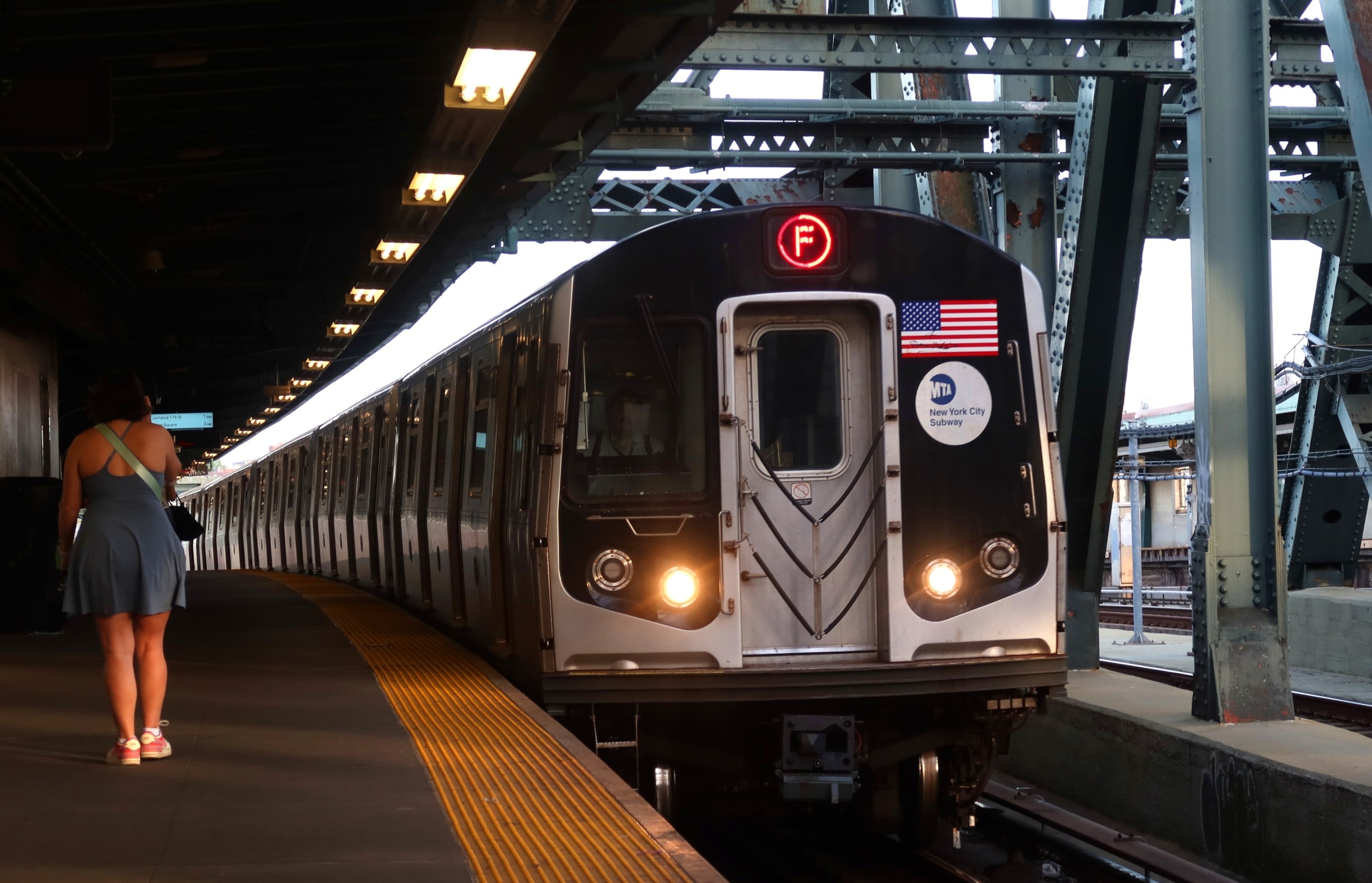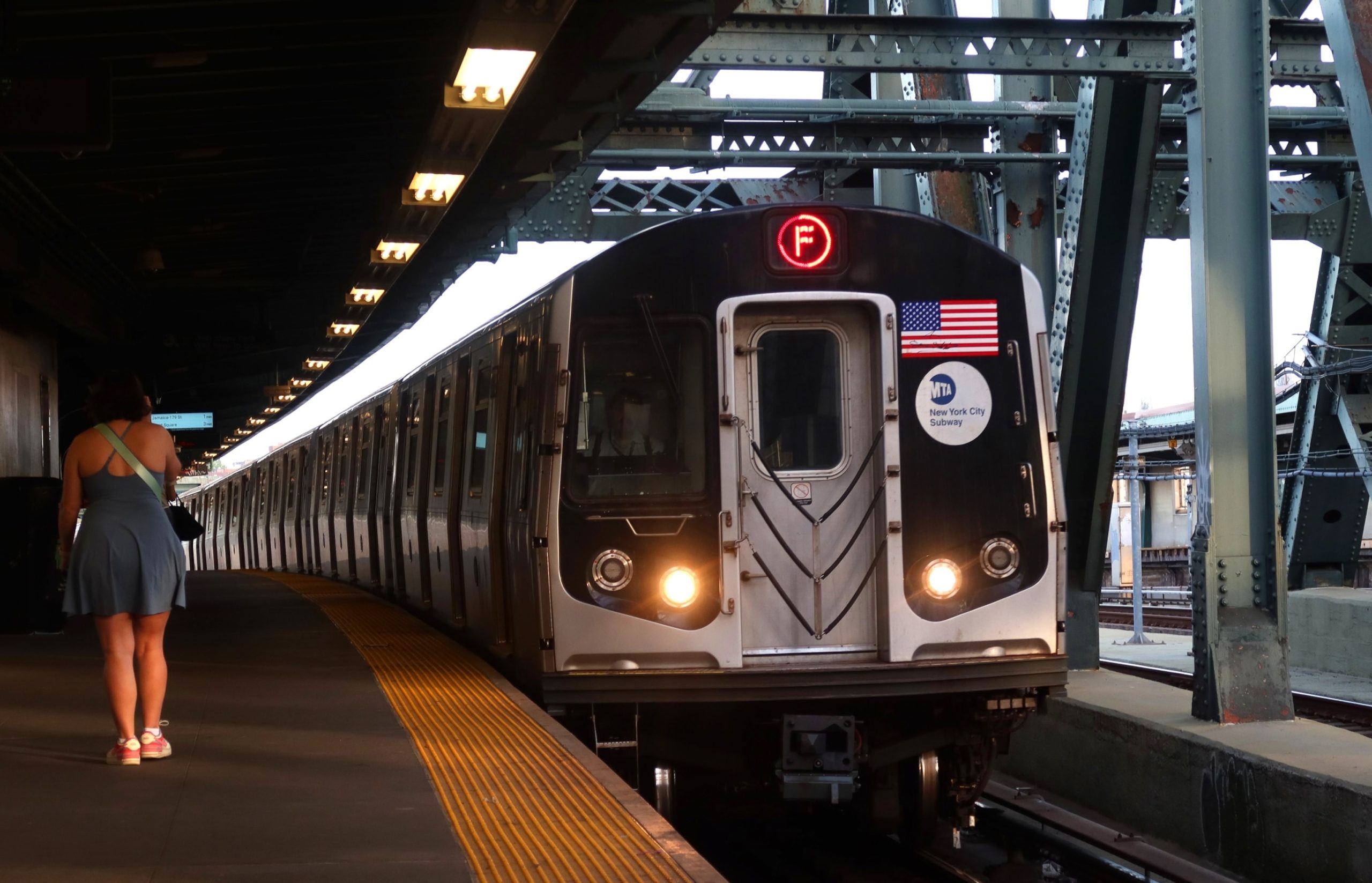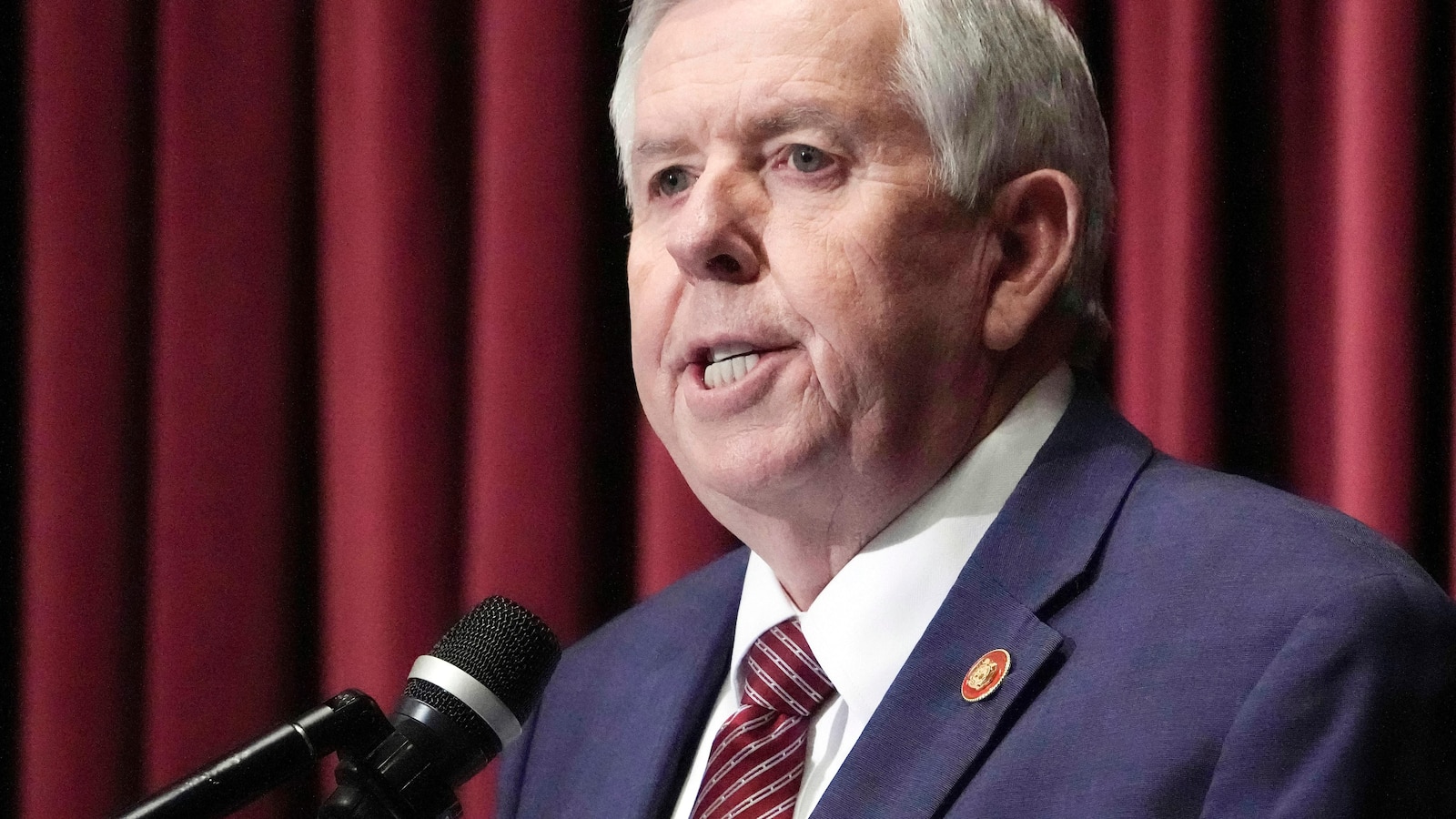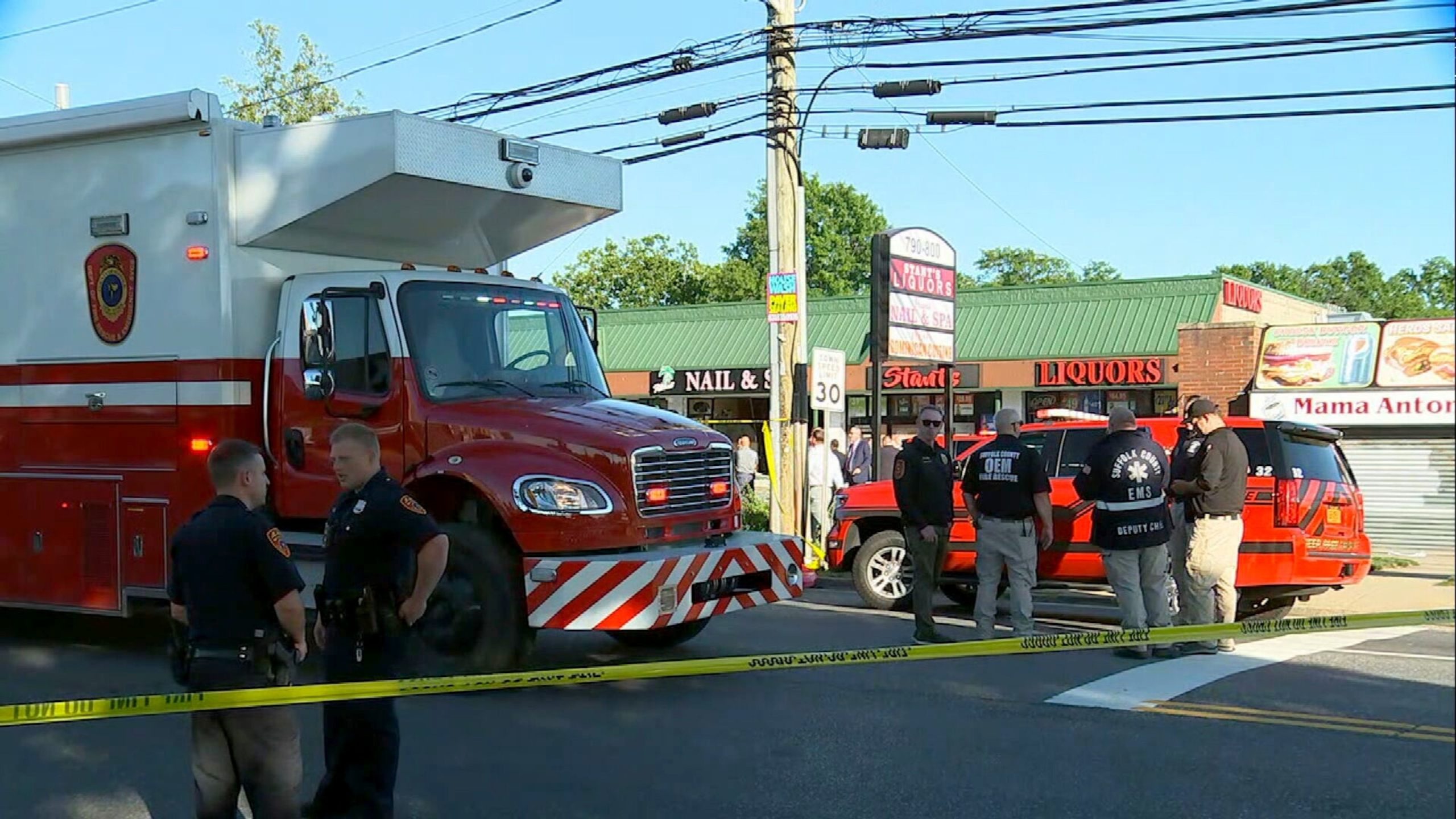A pro-Palestinian protester who was captured on video this month leading what city officials deemed an “antisemitic” call-and-response chant on a New York City subway surrendered to police, authorities said.
The protester, whose name was not immediately released, turned himself in Wednesday at the Transit District 2 precinct in lower Manhattan and was expected to be released after being issued a desk appearance ticket, according to the New York Police Department.
Police had been searching for the man since the June 10 incident on a crowded Manhattan subway car that prompted a police complaint from at least one rider, according to authorities.
A video of the incident on the Brooklyn-bound subway train later surfaced online.

A woman waits to board an F train at the Smith – 9th Street subway station on May 7, 2024, in New York City.
Gary Hershorn/Getty Images
“Repeat after me: Raise your hands if you’re a Zionist,” the suspect, wearing sunglasses and a traditional Palestinian keffiyeh scarf, which has become a symbol of pro-Palestinian resistance, is heard repeatedly saying in the video, adding, “This is your chance to get out!”
“Ok, no Zionists, we’re good,” the man is then heard saying.
NYPD officials asked others who were aboard the subway car and felt threatened to come forward.
The man is expected to be charged with attempted coercion, police sources told ABC News.
The subway encounter was among a string of incidents between June 10-13 in New York City, including vandalism linked to pro-Palestinian protests that were discovered in four other areas of the city, including at the homes of the Jewish director of the Brooklyn Museum and several of the museum’s board members, officials said.
A protest tied to the war in Gaza also prompted a large police response on June 12 and the closure of a block on the city’s Upper East Side, where the Palestinian Mission to the United Nations was vandalized and demonstrators littered the street with leaflets smeared with red paint and encouraging the intifada, according to police.
The vandalism came a day after a large protest against the war in Gaza was held outside a new exhibit in lower Manhattan honoring the 364 concertgoers killed at the Nova Festival in Israel during the Oct. 7 attack by Hamas terrorists. Hundreds of protesters waved Palestinian and Hamas military flags and the flag of Hezbollah, the Lebanese militant group that has vowed to destroy Israel.
Some protesters even tried to storm the doors of the exhibit as relatives of those killed at the Nova Festival were touring the displays, which featured photos of loved ones murdered by Hamas.
New York City officials, including Mayor Eric Adams, reacted to the vandalism and other acts by protesters that week as “antisemitic” and “repugnant.”
“These actions will never be tolerated in New York City for any reason,” Adams said at the time. “This is not peaceful protest or free speech. This is a crime, and it’s overt, unacceptable antisemitism.”
A pro-Palestinian protester in New York City recently surrendered to police after leading a threatening chant in the subway. The incident has sparked debate and controversy over the limits of free speech and the use of intimidation tactics in protests.
The protester, whose identity has not been disclosed, was captured on video leading a group of demonstrators in a chant that included threats against Israel and its supporters. The video quickly went viral, drawing condemnation from both pro-Israel and pro-Palestine groups.
The protester’s surrender to police came after widespread backlash and calls for accountability. Many argued that the chant crossed a line by inciting violence and promoting hate speech. Others defended the protester’s actions as a legitimate form of protest against perceived injustices.
This incident highlights the complex and often contentious nature of the Israeli-Palestinian conflict, which has long been a source of tension and conflict in the Middle East and beyond. The issue is deeply polarizing, with strong emotions on both sides and little room for compromise.
While freedom of speech is a fundamental right in democratic societies, there are limits to what can be said or done in the name of protest. Inciting violence, making threats, or promoting hate speech are not protected forms of expression and can have serious consequences.
In the wake of this incident, it is important for all sides to engage in respectful dialogue and peaceful protest. Violence and intimidation only serve to escalate tensions and deepen divisions. Both pro-Israel and pro-Palestine activists must strive to find common ground and work towards a peaceful resolution to the conflict.
As the world watches events unfold in the Middle East, it is crucial for all parties involved to uphold the principles of nonviolence, respect for human rights, and a commitment to peaceful coexistence. Only through dialogue, understanding, and mutual respect can a lasting solution to the Israeli-Palestinian conflict be achieved.



